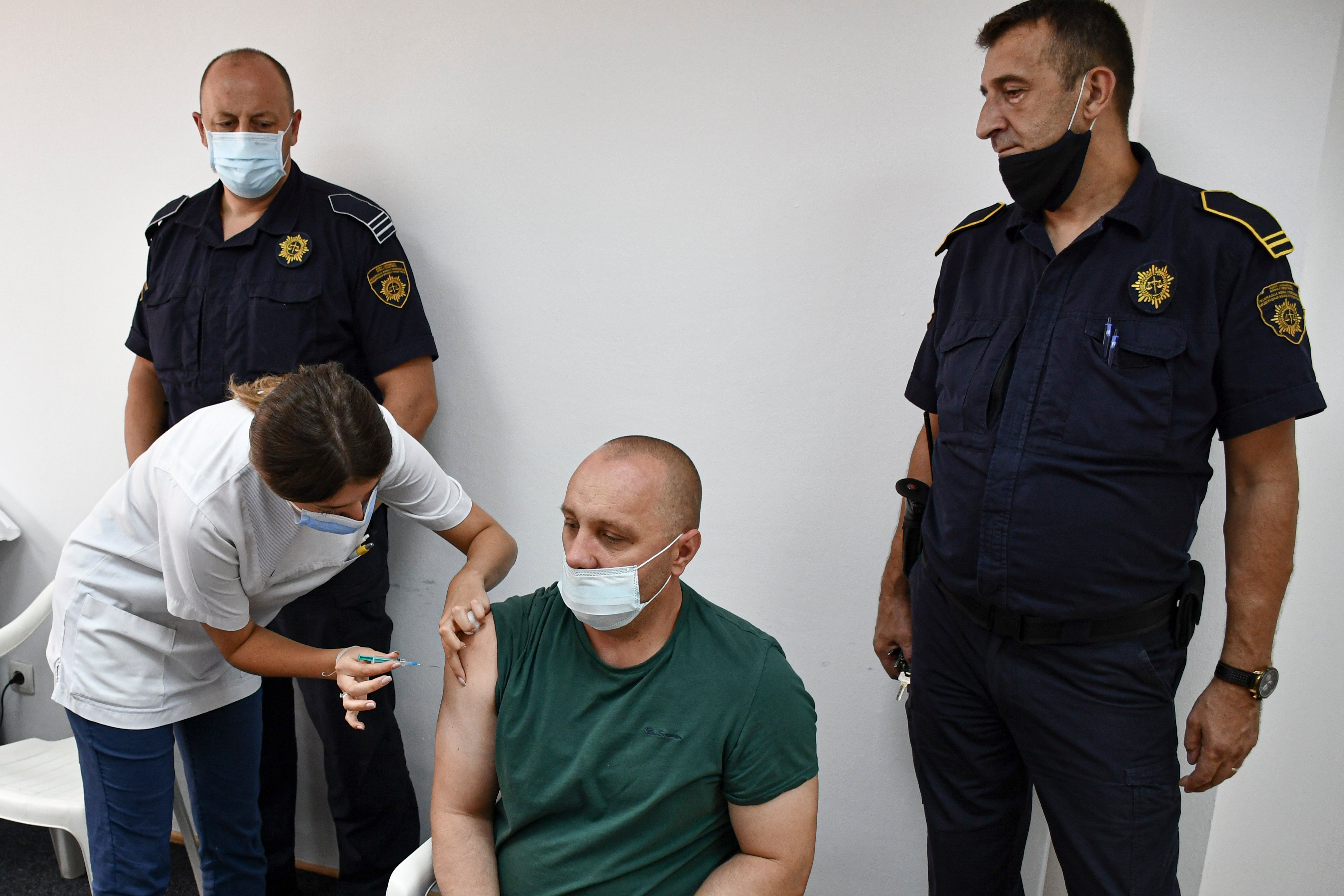In under-vaccinated Bosnia, inmate population stands out
Bosnia’s rate of vaccination against the coronavirus is one of the lowest in Europe, but one population in the Balkan country has bucked the national trend: its prison inmates

Your support helps us to tell the story
From reproductive rights to climate change to Big Tech, The Independent is on the ground when the story is developing. Whether it's investigating the financials of Elon Musk's pro-Trump PAC or producing our latest documentary, 'The A Word', which shines a light on the American women fighting for reproductive rights, we know how important it is to parse out the facts from the messaging.
At such a critical moment in US history, we need reporters on the ground. Your donation allows us to keep sending journalists to speak to both sides of the story.
The Independent is trusted by Americans across the entire political spectrum. And unlike many other quality news outlets, we choose not to lock Americans out of our reporting and analysis with paywalls. We believe quality journalism should be available to everyone, paid for by those who can afford it.
Your support makes all the difference.Bosnia s rate of vaccination against the coronavirus is one of the lowest in Europe but one population in the Balkan country has bucked the national trend: its prison inmates.
Over 80% of the 2,000 men and women serving sentences in Bosnia’s 13 prisons have received at least one dose of a COVID-19 vaccine. That compares to slightly over 27% for the nation as a whole, a rate that results from a lack of takers, not an absence of shots.
Bosnia and most of the rest of the Balkans struggled at the beginning of the year to secure vaccines but had a steady supply of jabs by late spring. While the public demand for shots quickly slowed, interest remained high inside correctional facilities, where authorities say getting vaccinated remains voluntary.
The country’s largest penal institution, the maximum-security prison in the city of Zenica, is a case in point. Over 90% of the prison's 600 inmates and over 60% of the staff have received two shots after an initial drive to encourage vaccine uptake.
“We are pretty much done,” warden Redzo Kahric said.
While the overall vaccination rate among all prison employees in Bosnia so far has been lower than among inmates, it is still more than twice as high than the rate in the general population.
Kahric said that getting vaccinated is voluntary for inmates at Zenica and Bosnia's other prisons. He thinks so many inmates submitted to shots as a matter of convenience; unlike the public at large, prisoners cannot bend or ignore anti-infection rules and must remain quarantined if they come into contact with an infected person.
Prisoners who are eligible for weekend leave also are tested before and after their trips outside. The spread of the virus appears to have generally been better controlled inside than outside Bosnian prisons. Since the start of the pandemic, no major prison outbreaks have been reported.
“Many members of my family got infected, including my mother, so I think that masking up and getting vaccinated is the way to go,” Fahro Kahriman, an inmate at Zanica, said.
In the early days of the pandemic, when most of the world faced shortages of personal protective equipment, Zenica prisoners were put to work sewing face masks as part of the prison’s work program.
The prison produced over 10,000 masks, primarily for in-house use, but also for the Justice Ministry to distribute to other correctional facilities, Kahric said. The program has continued along with the pandemic.
In the past, Zenica prison was notorious for its poor human rights record, but substantial reforms were made in the decade it has been under regular monitoring by relevant European and Bosnian human rights bodies and officials.
Inside the prison's sewing shop earlier this month, inmates appeared to enjoy light banter while stitching together protective face masks. Most said they freely embraced getting vaccinated against COVID-19, as well as making and wearing face masks as added protection.
Sewing masks is “a way to spend quality time in prison and, at the same time, to contribute to the society,” Kahriman said.
Bosnia, which has a population of 3.3 million, has reported nearly 290,000 virus cases and more than 13,300 COVID-19 deaths in the pandemic, some of the worst infection and mortality rates in Europe.
___
Follow AP's pandemic coverage at https://apnews.com/hub/coronavirus-pandemic